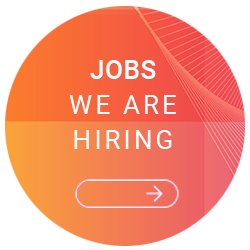E-commerce is still on the rise: According to a forecast by the Handelsverband Deutschland (HDE), online retail (+ 11 percent) will grow much faster in 2017 than the retail sector as a whole (+ 2 percent) and thus claim an even larger turnover share. Small and medium-sized in-store retailers in particular, whose revenues are threatened by smaller flows of customers in city centres, are the main victims of this development. Local marketplaces such as the “Online-City Wuppertal” or “Mönchengladbach bei eBay”, which are intended to strengthen local retailers, appear to be a possible way out of this situation.
However, such pilot projects cannot easily attract the necessary attention of customers in the wide variety of the World Wide Web. According to a report of the newspaper “Westdeutsche Zeitung”, the total monthly turnover of the “Online-City Wuppertal” is supposed to amount to only 1,000 to 1,300 euros – distributed among 60 retailers and over 880,000 products. Even if Wuppertal dealers and the local office for economic development point out that these figures do not take into account the clientele who use the “Online-City” for research before their stroll through the city and then spend their money as in-store customers, the report clearly demonstrates one fact: the establishment of a commercially successful local marketplace is not a no-brainer.
Nevertheless, some lessons can be learnt from the experiences Rolf Volmerig, chief executive of the office for economic development in Wuppertal, and Ulrich Schückhaus, Managing Director of the Mönchengladbach counterpart, shared with the magazine “etailment” in October.
#1 At the beginning of a local commerce project, the basics often have to be established first.
Everybody is talking about digitalisation, but many local retailers continue to operate very traditionally – for example, many retailers do not work with a digital ERP system. However, a digital ERP system is a necessary prerequisite for listing the products into the local marketplace. Therefore, the respective traders must be accompanied intensively in the initial phase.
#2 Every now and then, persuasion is needed.
Platform providers such as Atalanda and eBay receive a commission for their services, which are fixed at 8 percent of the turnover achieved via the marketplaces of Wuppertal and Mönchengladbach. However, some retailers believe this is too expensive. From Ulrich Schückhaus’ point of view, above all, facts help at this point: “In the case of shops, all relevant expenses such as rent, personnel and operating costs must be included in the sales price. If the product is sold online, it is not part of the shop, but is shipped directly from the warehouse. There are other, but no additional costs, such as shipping and returns.”
#3 The awareness of the local marketplace is very important.
In order to make the marketplace a success, the people living on the spot must become aware of it. At least in Wuppertal, this publicity did not exist for a long time: According to the “Westdeutsche Zeitung”, Rolf Volmerig admitted that the brand awareness of the marketplace in Wuppertal was only at 3 percent in May. As a result, the office for economic development tries to counteract by initiating more advertising measures.
#4 The acquisition of chain stores is difficult, but not impossible.
The integration of chain stores can increase the attractiveness of the marketplace. However, these companies often rely on their own channels, which are mostly nationwide. Therefore, persuasion is often required here too. According to Kenny Weißgerber, project coordinator of the “Online-City Wuppertal”, regional-specific products are a possible starting point. The office for economic development of Mönchengladbach was also able to convince the chain store Saturn.
#5 The marketplaces should not appeal to the pity of customers.
Even in the case of a local commerce platform, customers on the spot must be convinced by an attractive offer. Only then there is a chance for changing their purchasing behaviour in the long term. According to Volmerig, appeals to the pity of customers are not enough. “We must not bait the consumers with a compassionate tour, according to the slogan ‘Please buy local'”, explains the business promoter in an interview with “etailment”.
#6 Setting up multiple delivery slots is important.
Due to the geographical proximity to their customers, the dealers of the “Online-City Wuppertal” can offer a same-day-delivery. However, this offer is not a USP that is decisive for sales. “More important are several delivery slots. These have now been implemented,”reports Rolf Volmerig. However, a joint click-and-collect location, which had been rented temporarily by the Wuppertal office for economic development, was not profitable.







